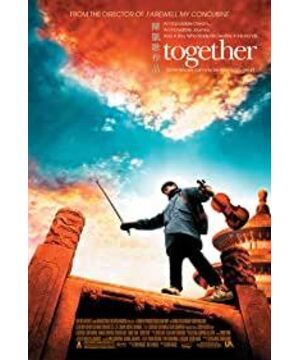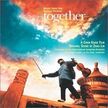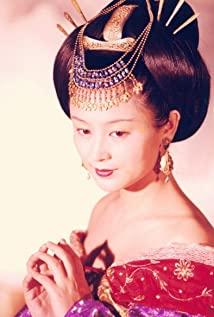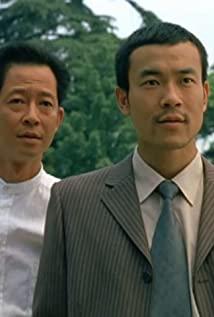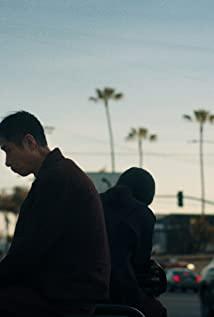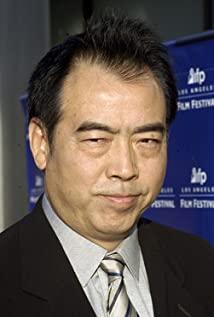The movie "With You" is a masterpiece directed and starred by Chen Kaige. As one of the representatives of the fifth generation of directors, Chen Kaige, with his rich qualifications, sophisticated techniques, and the fit of the form, all have multiple angles and levels of the story, which makes the film quite difficult to comment on. In terms of content, the film expounds on hormones under the turmoil of adolescence, class relations under the gap between the rich and the poor, the gap between ideals and reality, the pursuit of fame and fortune or pure art, and the selfless fatherly love. Unconsciously, the audience has a frozen witty force and a sense of oppression. The humor lies in how to interpret the expressions of sadness and joy of the little people, the emotion brought by the interaction between people, and the powerful and infectious rhythm in the story. Oppression is the contemplation left to people after the movie. Talking and laughing shows the warmth and helplessness of reality, conveys the sadness and beauty in life, establishes and expresses the values and objects of criticism advocated by the film, and thus arouses the audience's understanding of human nature, the relationship between people and society, values, Rational and emotional thinking.
This is also a good movie about the love of a small person Acura. The plot of the story is not novel, and even a little bit cliché. It tells the story of Xiao Bai Ding (Liu Cheng) at the bottom of the society who has worked hard to bring up his son (Liu Xiaochun), and strictly abides by the responsibility of a father, and regards his son's future as his own responsibility. , Save money and save money for a gifted violin son to go to Beijing to seek a better education. Two people, a piano and a roll of dry rations, boarded a long wooden boat and went to another "unfamiliar country".
If the theme of the movie is just how to tell the greatness of a father, it would be a bit shallow. The film takes "father's love" as the main line throughout the whole play, and leads the characters and supporting roles with stems and branches. From the perspective of humanistic care, art is higher than life and restores the essence of life. Like this movie, it's real with flesh and blood.
At the beginning of the film, the audience is greeted with a quiet and tranquil scenery of the south of the Yangtze River. A boy in a red sweater carries a violin in his arms, and the alleys with a violin in his arms, and a few melodious Jiangnan minor tunes - this kind of opening is really fresh, and what is even more commendable is the combination of Xiaochun's help for a dystocia pregnant woman. 's song. Subtitles produced in this way are impeccable in terms of "sound" and "color". The hot and cold scenes before and after, the contrast of rhythm and the texture of the picture all predict that this film is good to a certain extent, and the opening has achieved a fascinating effect.
Is it because the emotions of the plot setting are too vivid, or is the reality just that "two-level class" actualization?
When Liu Cheng and Liu Xiaochun just stepped into the illusory city, the language of film and television revealed their incompatibility with this "world" through the details: Liu Cheng had a rich orange hat on his head, and he was wearing a few clothes on his back. The sack bag, which is only very "migrant worker temperament", always speaks with Xiaochun in a loud voice, etc. These characteristics vividly describe the image of a down-to-earth small market. One of the clips: When Xiaochun and Liu Cheng stayed in a hotel on their first day in Beijing, Liu Cheng was surrounded by a group of people while taking a bath in the bathhouse. The camera took an overhead shot that faintly brought out another characteristic of Liu Cheng: humbleness. And when Liu Cheng timidly asked again and again: Is it really a 20 yuan wallet to wash and wrap it? When the tragic moment of his body was quietly magnified. And Liu Xiaochun was always curious when he arrived in another "country" because of his age and experience. In the face of the staggered city life, Xiaochun really showed his incomparable yearning and the turmoil of adolescence: he looked at the people in the city with envy and inferiority, and he carefully watched the intimacy between women and men , take the initiative to help women with luggage to attract women's attention and so on.
Following the pace of Liu Cheng's father and son rushing to Beijing to study art, the film presents the usual arrogance and snobbery, vanity and disguise of urban people, and the gap between the rich and the poor from a unique perspective. The status quo will also be criticized and ridiculed one by one.
When Liu Cheng licked his face to help his son Zhang Luo in school, he happened to hear the teachers' big truths in the toilet. Teacher Jiang and Professor Yu all told the reality in the film, the reality in reality: money, power ,relation. The difference is: Jiang is full of disdain and disgust for power and money transactions, while Yu is quite calm and compromised.
Jiang and Yu were originally two people with very contrasting identities, one was a poor intellectual, and the other was a professor who was surrounded and admired by the crowd of lights. Jiang Zhisuo's "desire" is to regard music as life, not to allow any contamination and blasphemy, and to regard it as the most holy thing. He ignores the money and money, and just likes to stay at home quietly, raise a few kittens and drink a pot Hot tea, this can also be described as: "Si is a shabby house, but Wu Dexin", at the same time he is also very down-to-earth, he will quarrel with his neighbors over trivial matters, very stubborn and very interesting, and this is also his rich personality The embodiment of charm, his guidance to Xiaochun's music also starts from being a human being, first being a human being, and then comprehending music through emotions. He is a lonely and aloof soul musician. Yu and Jiang's "desire" can be said to be very different. Yu has a rich material foundation, fame, and music surrounded by crowds, and it is these secular ties that make him have to bow to the reality of society. With his conscience, he once told his student Tang Rong to be humble, but in the end, he still compromised with reality step by step for himself, and was extremely eager for success to fill Xiao Chunhai with "so-called feelings". Teacher Jiang taught Xiaochun to comprehend music with his heart and feelings, and Professor Yu taught Xiaochun a very purposeful "success theory", just like Teacher Jiang himself said: I can teach you to learn the piano, but I can't guarantee your success. And choosing Professor Yu means success.
The word "emotion" is emphasized the most in the film, whether it is shallow music or life.
In the process of learning music, Teacher Jiang said most often: pull when you are happy, don't pull when you are not happy. It's about attitude being more focused on emotion. Professor Yu also often said: Your piano is your weapon! Your emotions are ammunition! The only thing in the world that cannot be given is love. Technology can be given to you, but you have to rely on your own feelings, and your job is to conquer.” Playing the piano requires the soul of the piano, and music with a soul will never be distinguished.
Liu Cheng is a humble and great father, although he is a social Although he is timid and cowardly, he will ask for a timid and firm apology for his son in front of strangers. , bravely and humbly running for a living in the poignant melody. This is his responsibility as a father, and it is his unreserved love for Xiaochun.
Lily's career in the play is an unpleasant job, she is vain, her private life is chaotic, she is a famous courtesan, although she has so many disappointments, she has a true temperament, especially The emotion that is revealed in the moment when her gorgeous appearance recedes. From the beginning to find Xiaochun to play the piano just for entertainment, to heart-to-heart, to the end, her reverence for music, her understanding of emotions, and finally the return of human nature, in a sense, this is also Xiaochun to her. Change and Purify.
In addition to showing emotions full of humanistic care in the film, the comedy factor is also in place. The film selects the scene of Liu Cheng buying rice at the market, and through the rustic price setting in Liu Cheng's village, it truly reflects the living conditions of the little people in the society at that time, which is both real and heart-wrenching, making the structure of the film more substantial. The content is more profound. And the strong rhythm and farce-like ending are undoubtedly three points for this movie.
Although the first half of the story is very exciting, it is only a drop in the bucket of the whole story. At the end of the film, the burden that has been laid at the beginning of the film is finally revealed: Xiaochun is an abandoned baby, who was picked up by Liu Cheng from the station back then. Because a violin was placed beside him, he taught Xiaochun to learn the violin since he was a child. People have persisted unremittingly. In this climax, the director perfectly combines the past with the reality, not only maintaining the continuity of time and space but also ensuring the integrity of the story. The flashback is dominated by gray, while the reality highlights the color of the audience (highlighting Xiaochun's eagerness to see his father and the emotions that are about to erupt when he is running at the station), the effective use of color at this time, The grasp of the rhythm and the heating up of the music pushed the film to another peak. When the violin playing in the auditorium of another time and space sounded, Xiaochun also found his father who was about to leave at the station. The two were speechless, but Xiaochun took out the violin with affection and used all his strength to let his fingers go. The tip slides on the strings, the soul runs in the music, and most importantly, through emotional music, I pour out my gratitude and love to the man in front of me. This is another splicing between two time and space, one is the auditorium where the flashlight is aimed, and the other is the station where people come and go. Under the strong contrast, the solo performance of the father in the station is more brilliant and great. Shaping is just right to make Xiaochun, who plays for his father in the sun, bloom with strong human brilliance, and show the true greatness of music. The director, through the accurate grasp of the rhythm point of the music and the splicing point of emotion, organically combines the two in time and space. At the same time, through the powerful ideographic function of music, the film without too many lines was pushed to the top.
This is a successful example of the director's use of rhythm, montage and emotion to tell a story. It not only touched the audience's tears, but also raised the film to a philosophical level: whoever lives in the fish and the bear's paw? Of course, the movie also answered this question for the audience at the end. Through Xiaochun, this child's values were passed on to everyone, and he sacrificed fame and fortune to get the truth.
Looking back on the title of the film, I suddenly feel that "With You" does not only refer to being with my father, but to being together with true feelings and true love. This "chicken soup for the soul after the rough" type of movie is like a loaded gun, hitting the softest part of everyone's heart deeply. When someone asks again that you can't have both the fish and the bear's paw, which one should you give up? When, A: I really love what I want.
weier May 18, 2013 1:59:49
View more about He ni zai yi qi reviews


